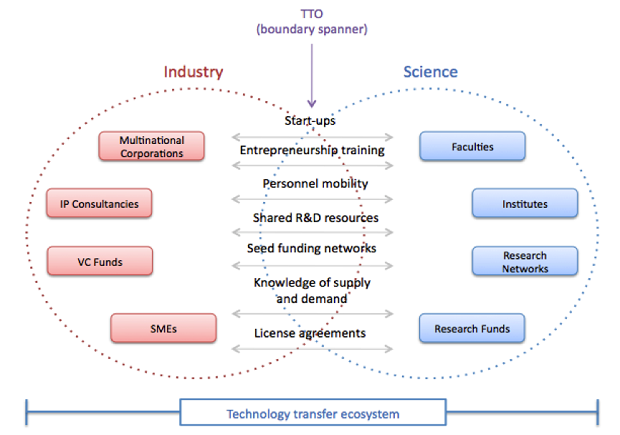* – This article has been archived and is no longer updated by our editorial team –
Below is our recent interview with Dr Roya Ghafele, Executive Director at OxFirst:

Q: Dr Ghafele, you are officially ‘one of the top intellectual property managers’ in the UK. How did you get to where you are today?
A: Key to my success is my dedication to the advancement of technology markets. IP plays a crucial role in there. Critically, as a business community we have not yet fully come to grips with the business proposition of intellectual property. My motivation for my work stems very much from the desire to change that. I seek to motivate leaders to take a fresh look at IP and see beyond the rather Cartesian framework that underpins intellectual property law.
I caught fire for IP many years ago, when I was working for the World Intellectual Property Organization. Ever since, I have been committed to advancing the state of play of Intellectual Property markets. In doing so, I took up various roles, so to be able to look at the business of IP from many different angles. While with the United Nations, I acted as an Ambassador for the intellectual property system. I then turned to Academia and taught IP from a business, political economy and legal perspective. At Oxford and Edinburgh University I held respective Academic positions in both areas; which is fairly rare. Quite few people can claim to have succeeded in both law and economics. Other stations in my career included the OECD and McKinsey.
OxFirst was launched nearly eight years ago out of the Said Business School of Oxford University. Being at Business school helped me a lot to nurture my business acumen and I profited a lot from its entrepreneurial spirit and the positive ‘can do’ attitude that prevails at Said. The business oriented atmosphere inspired me to bring to the world a more business centered approach to IP.
Q: Dr Ghafele, how does it make you feel to have won the Award by Global Business Insights?
A: I feel extremely privileged that my hard work and commitment has now been recognized through this award. However, this success would not have been possible without the amazing support of my team and I would like to thank the OxFirst team for that.
Before we started off, IP was primarily dominated by law firms, but little was offered to help the tech community sketch out the business proposition around IP. I started to change that and I am very grateful to Global Business Insights that such hard work has finally been recognized.
 Recommended: Meet mCart – The First Provider Of Decentralized Influence Marketplace-As-A-Service Solution On Blockchain
Recommended: Meet mCart – The First Provider Of Decentralized Influence Marketplace-As-A-Service Solution On Blockchain
Q: Dr Ghafele, what’s the vision that guides you in your work?
A: My vision is a world where IP nurtures creativity and innovation and where countries around the world, be they rich or poor, can take advantage of the intellectual property system to promote sustainable growth.
In the 21st century key resources will be increasingly intangible in nature.
In an environment where growth stems from access, ownership and management of knowledge assets it is crucial to find strategies that will enable inclusive growth. I hope through my work to be able to contribute towards the global public good and help advance the latest technological solutions, for the better of humanity.
Q: Dr Ghafele, from your experience, are entrepreneurs considering the value of their intellectual property? At what stage in the process should they invest in intellectual property protection?
A: IP can serve as an instrument of trade and exchange. Entrepreneurs eager to benefit from a series of IP business opportunities should start very early on to develop an IP strategy. In internet markets, IP plays a major role. As such, it can become both; a stumbling block or an opportunity to promote innovation. I tend to believe that companies that engage early on in IP have an advantage over those that don’t. Such advantage does however not stem from the simple ability to exclude others, but from the chance IP gives you to provide a liquidity event for your company.
Q: What is the most crucial institutional change needed to promote the management of IP?
A: What is needed is a change in mindset!
IP needs to be more systematically seen through an Open Innovation paradigm and perceived as a means to grow and nurture business relations. Important steps to achieve this is to institutionalize better reporting systems for IP, introduce more formal IP valuation systems and help senior managers understand how they can win business through IP.
Q: Dr Ghafele, can you give me some examples of your work?
A: I helped assess the economic value proposition of IP through economic analysis and research. Such economic argument found reflection in the strategic direction companies took, but was also fed into policy formulation and reflected in Court decisions.
A good example is my work for Austria, where I helped improve the state of play of technology transfer. In a three stage process I undertook an audit, assessed the improvement potential and finally developed a detailed approach to the valorization of IP. An important element in this process was to set up key performance indicators and lead Universities to ways that allow to measure the economic worth of the intellectual property.
Other than that, I trained senior IP managers of tech companies on IP strategy and IP management. These insights, communicated through the OxFirst Academy, were then fed into the everyday practice of IP management, so I heard. I also recently offered training to the German judiciary on IP valuation and damage calculation, and the feedback received indicates that the German Judges were very satisfied.
 Recommended: Microlearning App Gnowbe Provides A Mobile-First eLearning Solution For The Modern Workforce
Recommended: Microlearning App Gnowbe Provides A Mobile-First eLearning Solution For The Modern Workforce
Q: Dr Ghafele, what is your expectation of the future of IP and how would you define your role in there?
A: The question of IP strategy and policy is particularly pronounced as the nature of wealth generation is radically changing. While at the end of the 19th century the richest man in the world, John D. Rockefeller, made his wealth in the petrol industry, one of the richest man of much of the 21st century, Bill Gates, possesses primarily one resource: intellectual property. This alone, seems reason enough to systematically identify economic approaches to IP and competition law. IP bears the potential to be the currency of the knowledge-based economy, but for this to happen, it is crucial that we start treating it as an economic asset and use it to foster inclusive growth and assure strategy and policy measures to achieve this. Through OxFirst, I hope that I can contribute to leading companies through this path.
Activate Social Media:


